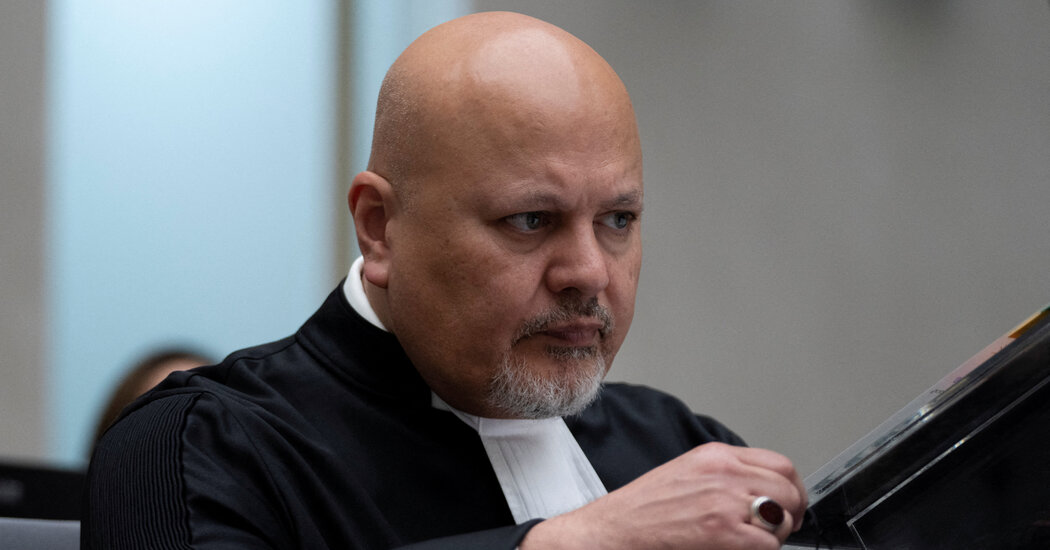Karim Khan, the ICC prosecutor who announced Monday that he would seek arrest warrants for the leaders of Israel and Hamas, has earned, over a long career in international law, a reputation as a gifted orator and advocate tenacious.
A British lawyer, he took up the position of Chief Prosecutor of the ICC in June 2021. Previously, he had served on both the defense and prosecution fronts at several international tribunals.
Among his high-profile clients were Seif al-Islam el-Gaddafi, son of the late Libyan dictator Muammar el-Gaddafi; and Charles Taylor, the former president of Liberia, who fired him.
One controversial case was his defense of William Ruto, now president of Kenya, accused of inciting violence following the national election. In 2016, when Ruto was vice president, the case ended in a mistrial due to witness interference and political interference. Mr Khan has not been accused of wrongdoing. He has also worked on war crimes issues in Rwanda, Cambodia and Iraq.
ICC member countries elect a prosecutor by secret ballot and chose Khan in 2021 after a months-long stalemate. He has received strong support from Britain, among others in Europe. Although the United States is not a member of the court, officials in Washington have supported it behind the scenes.
One of his first acts as prosecutor, which caught many by surprise, was to “downgrade” an investigation into prisoner abuse by American forces in Afghanistan, focusing instead on alleged large-scale crimes by the Taliban and the Islamic State.
He launched an investigation into Russia's invasion of Ukraine soon after it began in 2022 and obtained an arrest warrant for Russian President Vladimir V. Putin and another Russian official in March 2023. He had shown little progress in an investigation, opened in 2021, of Israel's alleged crimes against Palestinians, nor of Hamas' crimes.
Numerous legal commentators have argued that the disparity reflects a double standard that undermines the court, although the court said the investigation was hampered by a lack of cooperation from Israel. Critics have accused Khan of being slow to react to the Hamas-led attack on Israel on October 7, and Israel's subsequent military response, which created a humanitarian crisis in its attempt to crush Hamas.
But Mr. Khan noted that investigators were allowed to work in Ukraine immediately, while Israel barred him or anyone from his office from entering Gaza. He was recently allowed to travel to the West Bank and to Israeli villages attacked by Hamas.
Khan's announcement on Monday that he had asked judges for arrest warrants for two senior Israeli officials – Prime Minister Benjamin Netanyahu and Yoav Gallant, the country's defense minister – and three Hamas leaders was an exceptional event by the standards of the CPI.
Instead of waiting for the judges to decide or sign the warrants, he unexpectedly revealed his plans in a recorded announcement on the court's website. Equally unusual was the simultaneous disclosure of a list of eminent experts, two of them former judges, whom he had consulted to review his evidence and legal analysis before seeking the warrants. While prosecutors are known to consult specialists, some experts saw the publication of the list of names as an attempt by Mr Khan to demonstrate that there was strong legal support for his decision outside of court .
Christine van den Wyngaert, a veteran Belgian jurist who has served at the International Criminal Court and other international tribunals, said Khan is “showing that he has put a lot of thought into this.”
He added: “He seems to be more cautious than his predecessors. Sometimes their cases failed because there was insufficient evidence.”





